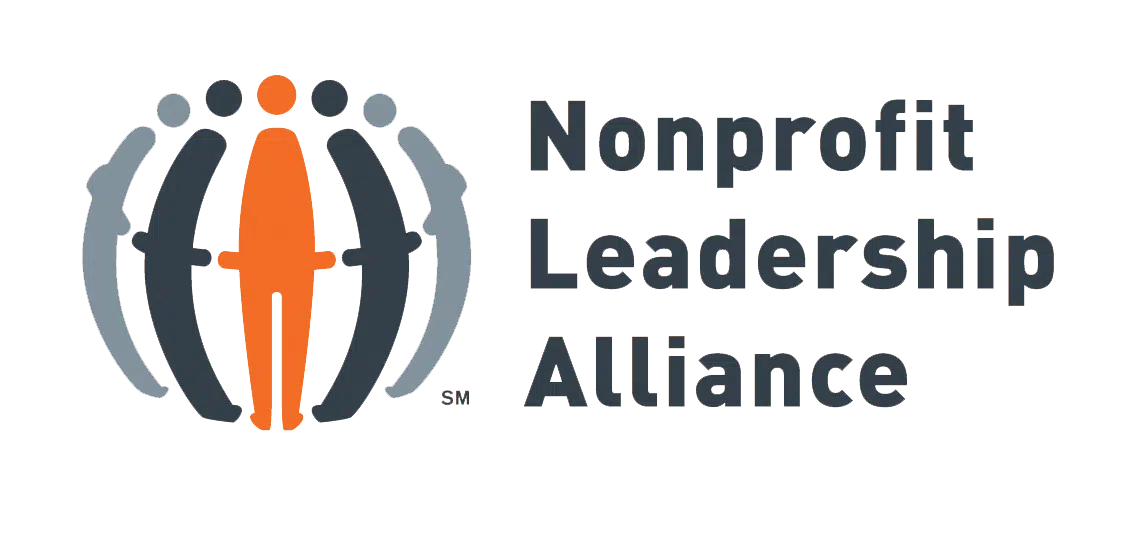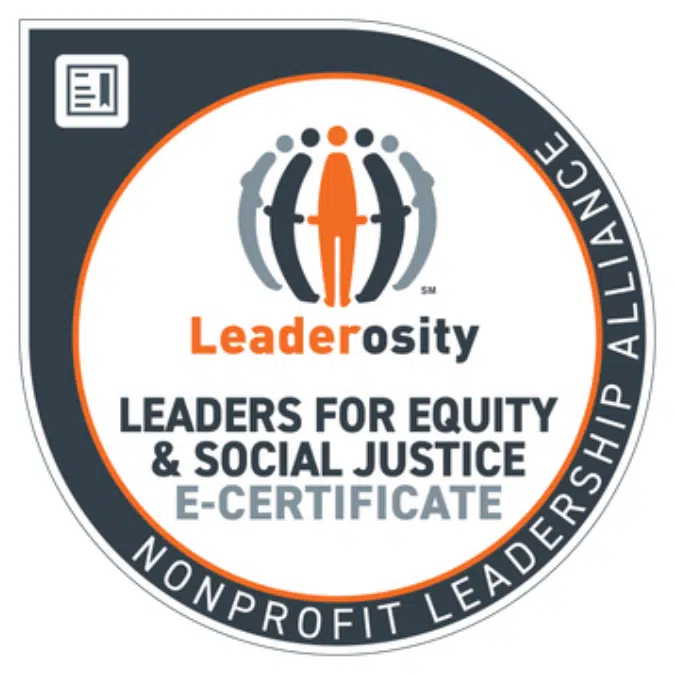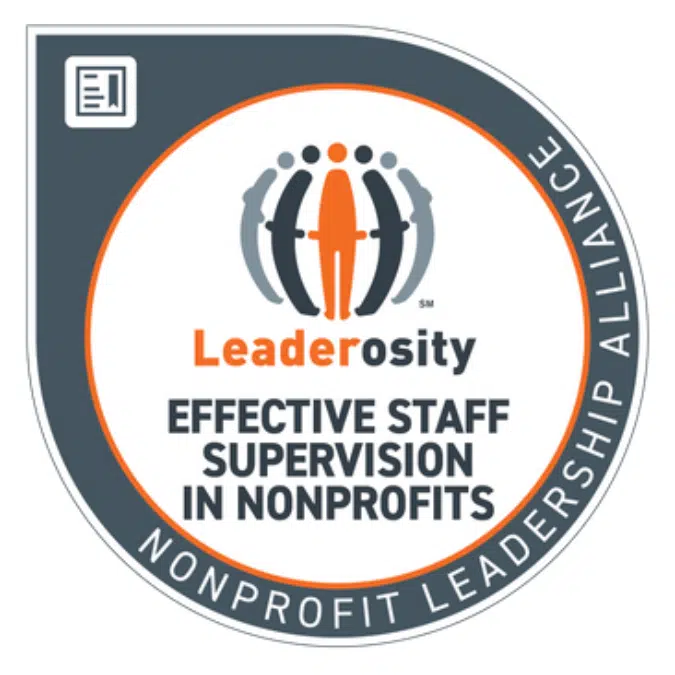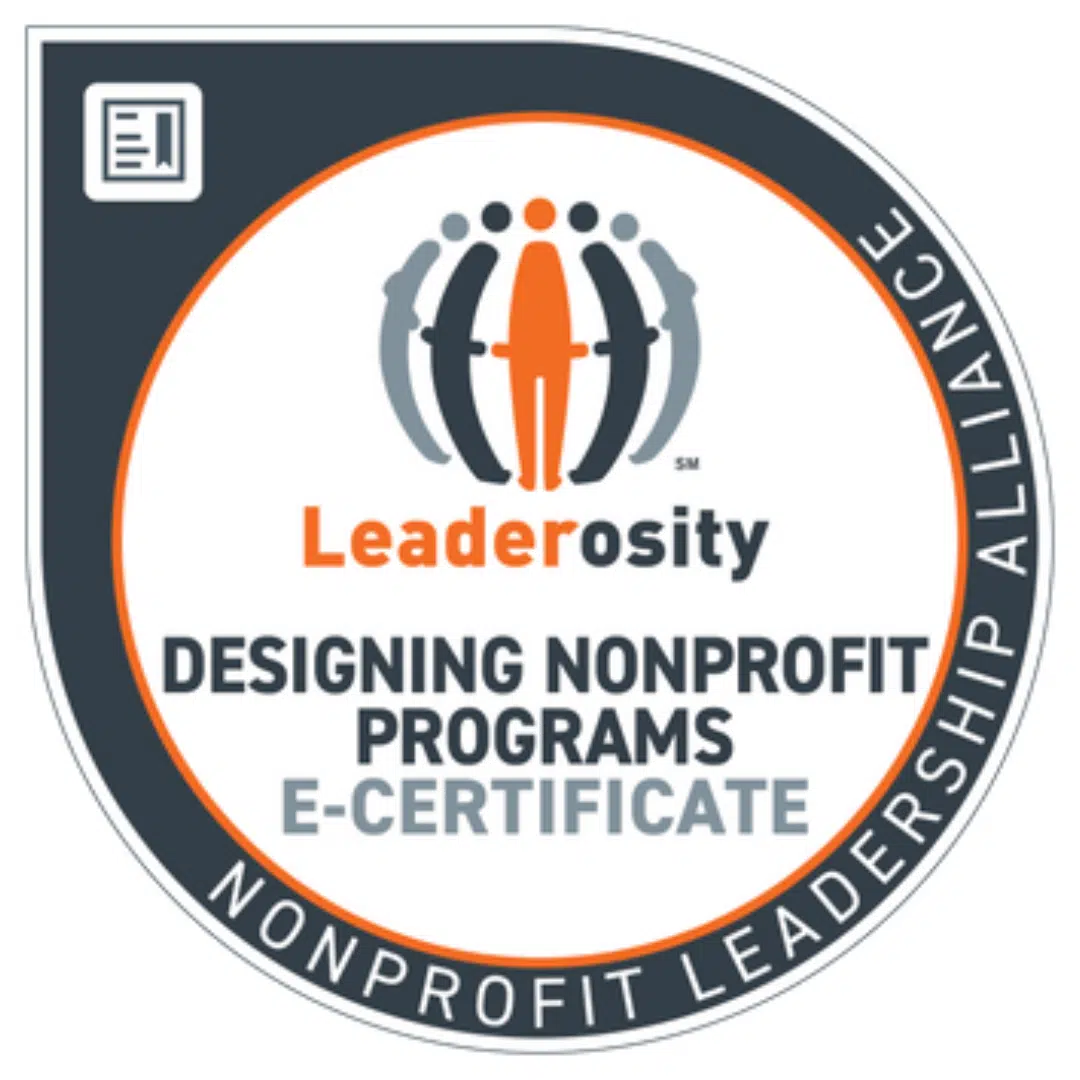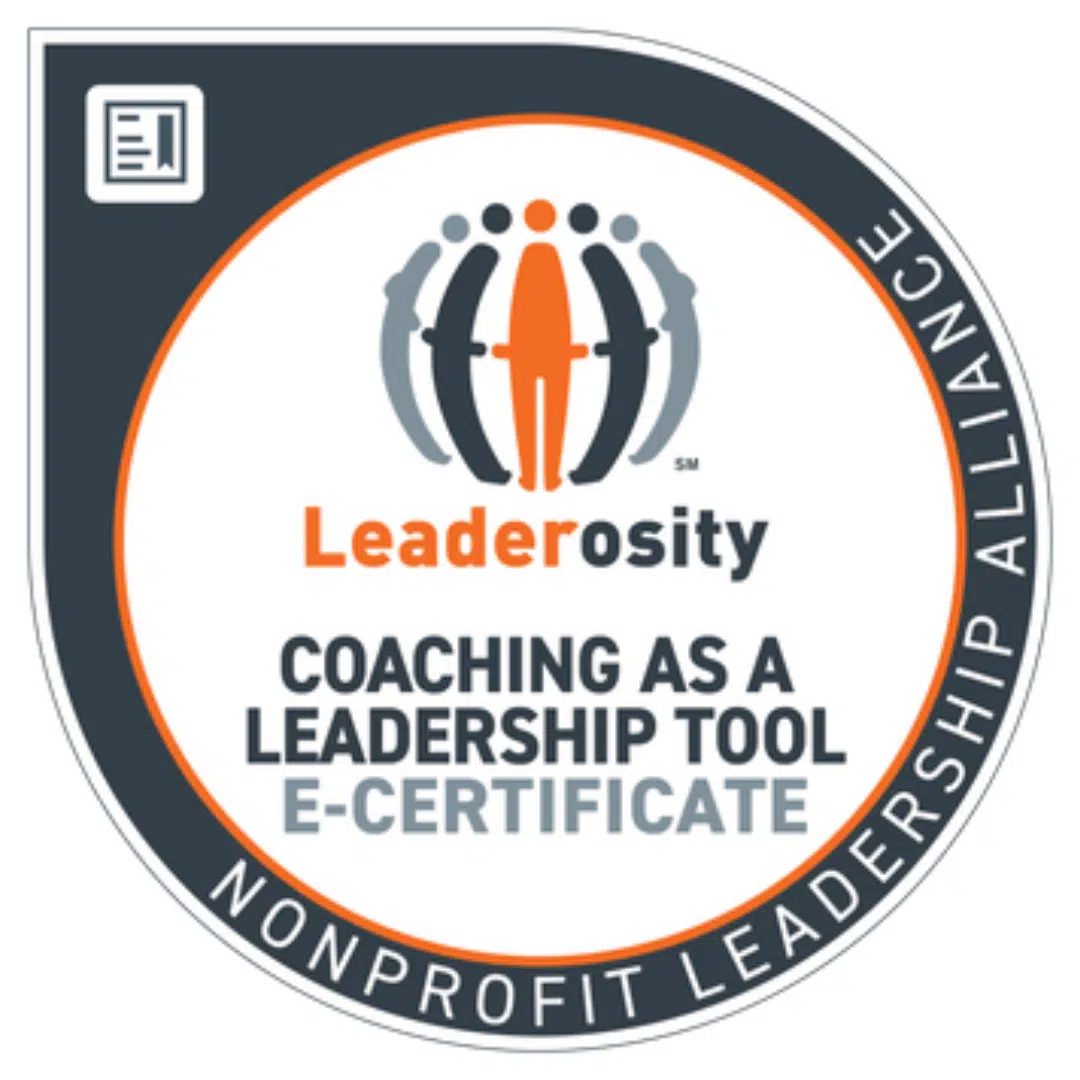Think back to when you first got your start in the nonprofit sector. You may have had experience as a donor or a volunteer before, but you had a lot to learn when you became a nonprofit professional. You had to become acquainted with fundraising strategies, marketing initiatives, strategic plans, and all of the behind-the-scenes aspects of how organizations run.
As much as you felt you had to learn at the beginning of your nonprofit career, you still have a lot to learn. All nonprofit professionals do! We should never stop learning in our professional lives.
One of the most effective and efficient ways to continue intentionally learning is by investing time and energy to take nonprofit courses.
Here at The Nonprofit Leadership Alliance, we’ve seen these benefits firsthand as we’ve helped individuals and organizations alike implement professional development. Using our experience of 75 years, we’ve put together this guide that covers the benefits of nonprofit courses and best practices for choosing the best one. Plus, we’ve even compiled suggestions of courses so that you can immediately jump right in.
Use the navigation below to jump to the section that most interests you or join us from the top for a comprehensive view on the topic:
- Why should you consider nonprofit courses?
- How do you choose the nonprofit course to take?
- What are the best nonprofit courses available?
After answering these key questions, we’ll take a closer look at our favorite resource for nonprofit courses: the Leaderosity Library.
Let’s get started.
Why even consider nonprofit courses?
Nonprofit courses are a resource that can help you hone your skills in the sector, discover the latest trends, learn about the newest technology, and enhance your abilities as a leader.
Even past the content that you’ll learn in the courses, there are plenty of other advantages that come with incorporating professional development into your organization’s activities. Consider the following:

- Employee retention. If your nonprofit sponsors professional development opportunities for your staff members, they’ll be more engaged with the organization, which improves retention. According to this resource, the cost of replacing an entry-level employee is about 30%-50% of their salary, a mid-level executive is about 150% of their salary, and a high-level executive costs about 400% of their salary. It’s much more cost-effective to invest in engagement opportunities to boost retention than replace lost team members. If you’re interested in seeing just how much employee turnover costs your organization, check out our cost of turnover calculator. You can see for yourself just how expensive it can be.
- Organization ROI. The more you learn through effective nonprofit courses, the better you can adjust your strategies to increase your return on investment and make a greater impact on your mission. For example, consider your communications strategy. During the unprecedented events of 2020, you probably had to change up your approach to account for social distancing guidelines during the COVID-19 crisis. But imagine how much easier that process would’ve been with some guidance from a crisis communications course for nonprofits! You would’ve had a much easier time making decisions and reacting quickly to the necessary changes.
- Personal growth. In addition to the benefits for the organization, nonprofit courses also provide plenty of personal growth opportunities for individuals. You can make yourself more valuable and marketable as a professional when you focus on growing and learning as an individual. Applying your knowledge makes you a more competitive candidate for promotions or new positions. For example, if you’d like to move from a junior fundraising position to a more senior spot, you might learn more about fundraising strategies and earn a professional credential that you can leverage to advocate for your own promotion.
While there are many options to consider when it comes to professional development, nonprofit courses are one of the most engaging. An effective course offers multiple types of engaging content opportunities and interactive elements that help keep you focused and continuously learning.
How do I choose what nonprofit course to take?
Focusing on nonprofit professional development is a worthwhile investment (as we’ve just covered), but what is it about nonprofit courses that make them the best option? After all, there are plenty of other types of resources available, like books, podcasts, newsletters, journals, videos, and blogs.
Nonprofit courses are the most advantageous option because they offer both the greatest opportunity for engagement and the best value for your investment.
You might read half of a book and put it down because the language didn’t capture your attention. Podcasts and articles are great resources for spot learning, but they may not offer the most comprehensive coverage of subjects. Nonprofit courses are built to cover entire subjects comprehensively while using a variety of engaging formats and strategies.
To experience all of these benefits, however, you need to make sure you’re investing in the right nonprofit courses. How can you make this choice? We’ve compiled some considerations you’ll need to take into account when deciding:
Open-Source or Paid Courses
There are many nonprofit courses available that are advertised as “free.” These open-source courses are incredibly tempting for nonprofits as many organizations operate on tight budgets. However, you’ll need to be careful with these courses as many only offer a limited amount of coursework before they require payment or they simply don’t provide the highest quality content.
Generally, paid courses tend to be more reliably high-quality. But, again, you’ll need to be careful to make sure you’re getting the most value for your investment. Check reviews of the courses that you’re considering or ask for recommendations from your collegues before buying the courses.
With subscription-model nonprofit courses, you’ll gain access to multiple courses containing relevant educational content for a single rate. Make sure you know approximately how much you’d be paying for each course that you plan to take per month to determine the worth of the course.
For example, if a subscription-model organization offers 10 courses for $100 per month, you would be spending $10 per course if you took them all. Be realistic about the number of courses you’ll probably make it through. In the above example, if you know you’ll complete 5 of the courses in a month, then the subscription is still worth $20 per course. This will help you compare the pricing of subscription courses with individually bought ones.
Subject Matter Available
When looking at the potential nonprofit courses that you’re considering, be sure to take into account the ideal subject matter that you’d like to learn more about. It’s easy to invest in a nonprofit course that covers a subject that you’re already familiar with and take an interest in. However, that’s not how you can make the most of your investment. Consider the subject matter that aligns not only with your current interests but also with areas where your knowledge may be lacking.
When analyzing subject matter, consider your own (or your team’s) weaknesses. Any weaknesses or subjects that you’re just not familiar with present great opportunities for improvement and learning. You’ll get much more out of a course covering a brand new subject than a course taking a deep dive into something that you’re already familiar with. Aim to become a well-rounded nonprofit professional as you look for the best courses to take. True growth and maximization of your investment lie in challenging yourself with new material.
Convenience and Flexibility
When it comes to looking for convenience and flexibility in nonprofit courses, the easiest way to find it is by investing in online courses. Online courses allow for learners to access content from wherever they are and whenever it’s convenient.
Because everyone learns at different paces, it’s important to invest in a solution that will allow you to work at a speed that best suits your needs. This takes some pressure off and creates a learning environment that is specific to you as a learner.
The last option that nonprofits sometimes consider is creating their own educational course for their staff, board members, and volunteers. This strategy is great for extensive built-out educational programs. If this is your goal, you’ll need to do research on choosing the best LMS for nonprofits. You can find our guide on the subject here.

What are the best nonprofit courses available?
When it comes to choosing the right course for you or your nonprofit team, be sure to first think about your needs in the sector. Are you working to develop new leaders at your organization? Need better communication strategies? Some of the most common needs can be addressed in our top courses that we’ve featured in this section. Below are our favorite options for nonprofit courses.
Leaders for Equity & Social Justice: Certificate
The Leaders for Equity & Social Justice is a nonprofit certificate training that helps professionals develop cultural competency within their organizations. This three-course, self-guided journey encourages individuals to take a hard look at themselves to evaluate their own understanding of equity and bias as well as the next steps that can be taken to continue personal and professional development.
When you take this training, you’ll learn more about the structural and systematic barriers that prevent equity in society and in organizations. Then, you’ll examine potential actions that you can take to align your professional practices with social equity objectives.
This course series is ideal for anyone interested in promoting equity or social justice in their professional lives. However, it’s especially impactful for leaders in the nonprofit sector as they can learn strategies to become a better manager and leader in the field.
This training lasts about 15 content hours or a recommended 3 hours per week for 5 weeks. After completing the course, you’ll be eligible to receive The Leaders for Equity & Social Justice e-certificate and digital badge.
Effective Staff Supervision: Certificate
Effective leadership is not just about making decisions; it’s about understanding and guiding your nonprofit team to success. This training course is designed to equip emerging leaders with the essential tools and insights needed to excel in supervisory roles within the nonprofit sector.
The course unfolds over three comprehensive modules, each crafted to build upon the last, forming a cohesive learning journey. You’ll start by exploring the nuances of personal and structural bias, learning how to foster a team that thrives on diversity and inclusivity. The next step is mastering the transition from an individual contributor to a supervisor, a pivotal shift that this course demystifies with practical strategies.
The certificate training doesn’t just teach you about leadership; it helps you discover your unique communication and leadership style. With this self-awareness, you’ll craft a personalized plan charting a course for long-term nonprofit career success.
Beyond the interpersonal aspects, the course also provides a solid grounding in the legal framework essential for supervisors, ensuring your organization remains protected and compliant with industry standards.
Designing Nonprofit Programs: Certificate
Designing Nonprofit Programs is a four-course series that dives into the designing and implementation of mission-focused nonprofit programming.
The first part of this series covers the market research aspect of program design, walking through the identification and analysis of your community’s needs. The second part of this series covers a Theory of Change and the Logic Model as tools for determining the inputs, outputs, and outcomes of a nonprofit program. Parts three and four of the course cover program funding strategies and implementation respectively.
This nonprofit course series is perfect for anyone in the nonprofit sector. Leaders can use the concepts of the course to implement effective and mission-driven programs for their organizations. Meanwhile, other professionals can use the skills and strategies to strengthen existing programs or suggest new opportunities.
Coaching as a Leadership Tool: Certificate
In today’s ever-evolving nonprofit landscape, the essence of leadership is not just to direct but to empower and invigorate.
The Coaching as a Leadership Tool course series is meticulously crafted to transform managers into leaders who foster robust, compassionate, and dynamic organizations and communities.
Embarking on this learning path, you will engage in a profound exploration of your own leadership values and strengths. The course is designed to infuse coaching into your leadership style, thereby reducing stress and significantly amplifying both individual and organizational capacity and productivity. Step into the role of a leader who doesn’t just manage but truly inspires and transforms.
Leaderosity Library: The Best Resource for Nonprofit Courses
All of the courses listed above (and more) are actually available on the exact same platform! The Leaderosity Library is our favorite resource that you can use to learn new skills, expand your competencies, and gain new knowledge. If you’re curious about what else you can learn, explore their course catalog.
Each month, the site is updated with new nonprofit courses and certificates so that you have access to the latest from the Nonprofit Leadership Alliance.
Professional development is immensely valuable in any industry, but in the nonprofit sector, investing in yourself and your staff can result in even more substantial organizational and personal growth. Nonprofit courses are one of the most comprehensive and engaging options to incorporate this development for yourself or your team.
When it comes to selecting the right nonprofit courses and other professional development opportunities, you’ll want to conduct sufficient research (after all, that’s why you read this article). You need to make sure you’re getting the best deal and the highest quality materials! Below, you’ll find some additional resources that you can use to conduct further research:
- Nonprofit Professional Development | Resources for Success. Check out our favorite resources for nonprofit professional development with this great resource.
- Learning Management System for Nonprofits: A Complete Guide. If you’re looking to create your own nonprofit courses, make sure you have the best LMS for nonprofits in your tech stack. This complete guide will help you narrow down your options.
- Leaderosity Learning Library | Course Catalog. Get the best deal on nonprofit courses for your staff with the Leaderosity Learning Library. Check out the course catalog!
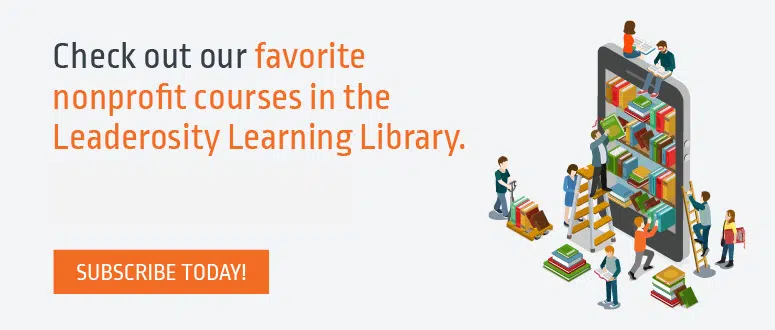
Did you enjoy this story?
Get nonprofit tips and tools delivered right to your inbox by joining The Nonprofit Leadership Alliance Newsletter. Our bimonthly newsletter will make sure you know what’s happening with our network of social sector leaders.
